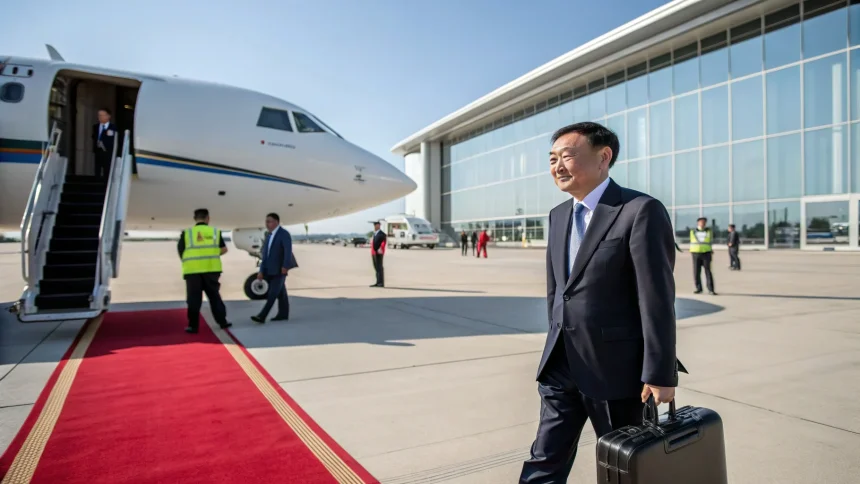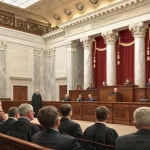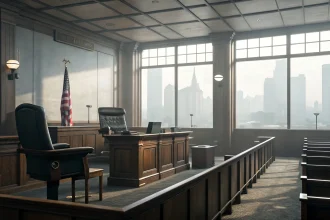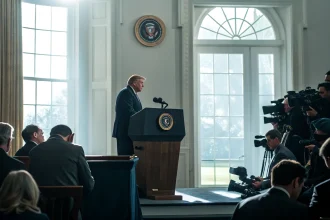Former Thai Prime Minister Thaksin Shinawatra has unexpectedly left Thailand, departing just five days before a court decision that could result in his imprisonment. This sudden exit has caught political observers off guard and raised questions about his future plans.
Thaksin, who served as Thailand’s prime minister from 2001 until he was ousted in a military coup in 2006, has been a polarizing figure in Thai politics for decades. His departure comes at a critical moment as he faces potential legal consequences that could significantly impact his political legacy.
The timing of his exit—mere days before the scheduled court ruling—has fueled speculation about whether he intends to avoid potential imprisonment. The court decision could mark a turning point in Thaksin’s long-running legal battles that have followed him since his removal from office.
Legal Challenges and Political Context
The upcoming court ruling represents the latest chapter in Thaksin’s complex legal situation. Since being ousted from power, he has faced numerous charges that his supporters claim are politically motivated. The former telecommunications tycoon has spent much of the past decade living in self-imposed exile to avoid legal proceedings in Thailand.
Political analysts note that Thaksin’s decision to leave Thailand at this juncture may indicate his assessment that the court ruling will not be in his favor. The case is one of several legal challenges that have dogged the former leader since his fall from power.
The Thai judicial system has been a key battleground in the country’s political conflicts, with Thaksin and his allies frequently claiming that courts have been used as tools against them by political opponents and the military establishment.
Implications for Thai Politics
Thaksin’s departure could have significant ramifications for Thailand’s political landscape. Despite his physical absence from the country for much of the past decade, he has remained an influential figure, with political parties linked to him continuing to win elections.
His political movement has maintained strong support, particularly among rural voters in Thailand’s north and northeast regions. These supporters view him as a champion who implemented policies that benefited ordinary citizens, including:
- Universal healthcare programs
- Rural development initiatives
- Microfinance schemes for villages
However, his critics, primarily from urban middle-class backgrounds and traditional elites, accuse him of corruption, abuse of power, and undermining traditional institutions during his time in office.
Political scientist Dr. Thitinan Pongsudhirak from Chulalongkorn University noted, “Thaksin’s decision to leave before the verdict suggests he may be preparing for another extended period away from Thailand. This could reshape political alliances and strategies among both his supporters and opponents.”
Regional Reactions and Asylum Speculation
While Thaksin’s current location remains unconfirmed, his previous periods of exile have seen him reside in various countries including the United Arab Emirates, Montenegro, and the United Kingdom. There is now speculation about whether he will seek formal asylum in another nation.
Regional governments have not yet commented on Thaksin’s departure or potential requests for residence. His movements have historically been closely watched by neighboring countries due to his political influence and business connections throughout Southeast Asia.
A diplomatic source speaking on condition of anonymity stated, “His departure creates diplomatic sensitivities for any country that might host him, given Thailand’s importance in the region.”
The Thai government has not issued an official statement regarding Thaksin’s exit from the country. However, political observers suggest that his departure might actually reduce immediate political tensions ahead of the court ruling.
As Thailand continues to navigate its complex political landscape, Thaksin’s absence—whether temporary or extended—adds another layer of uncertainty to the country’s ongoing struggle to achieve political stability. The court’s upcoming ruling, even in his absence, will likely have lasting effects on Thailand’s political dynamics.









